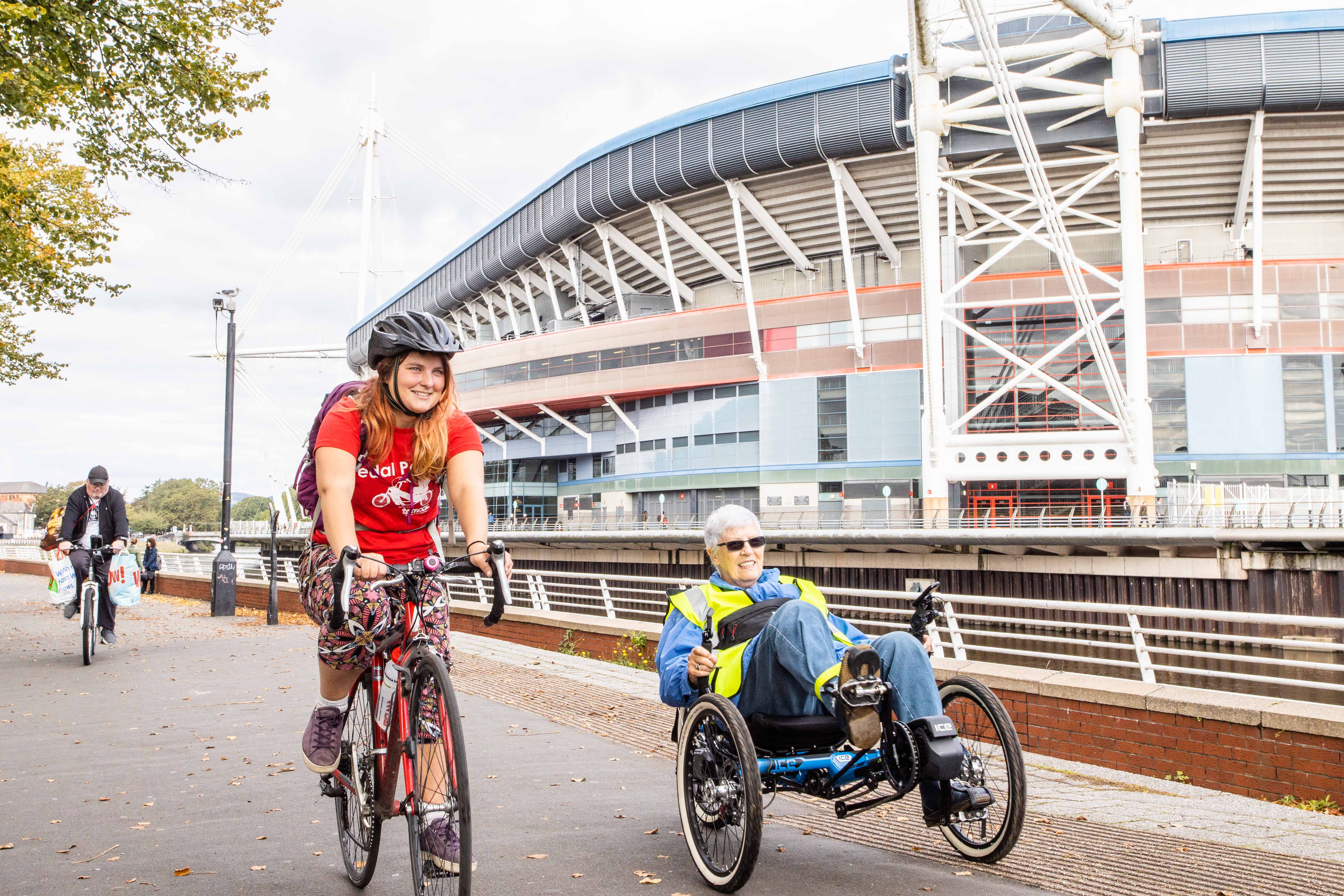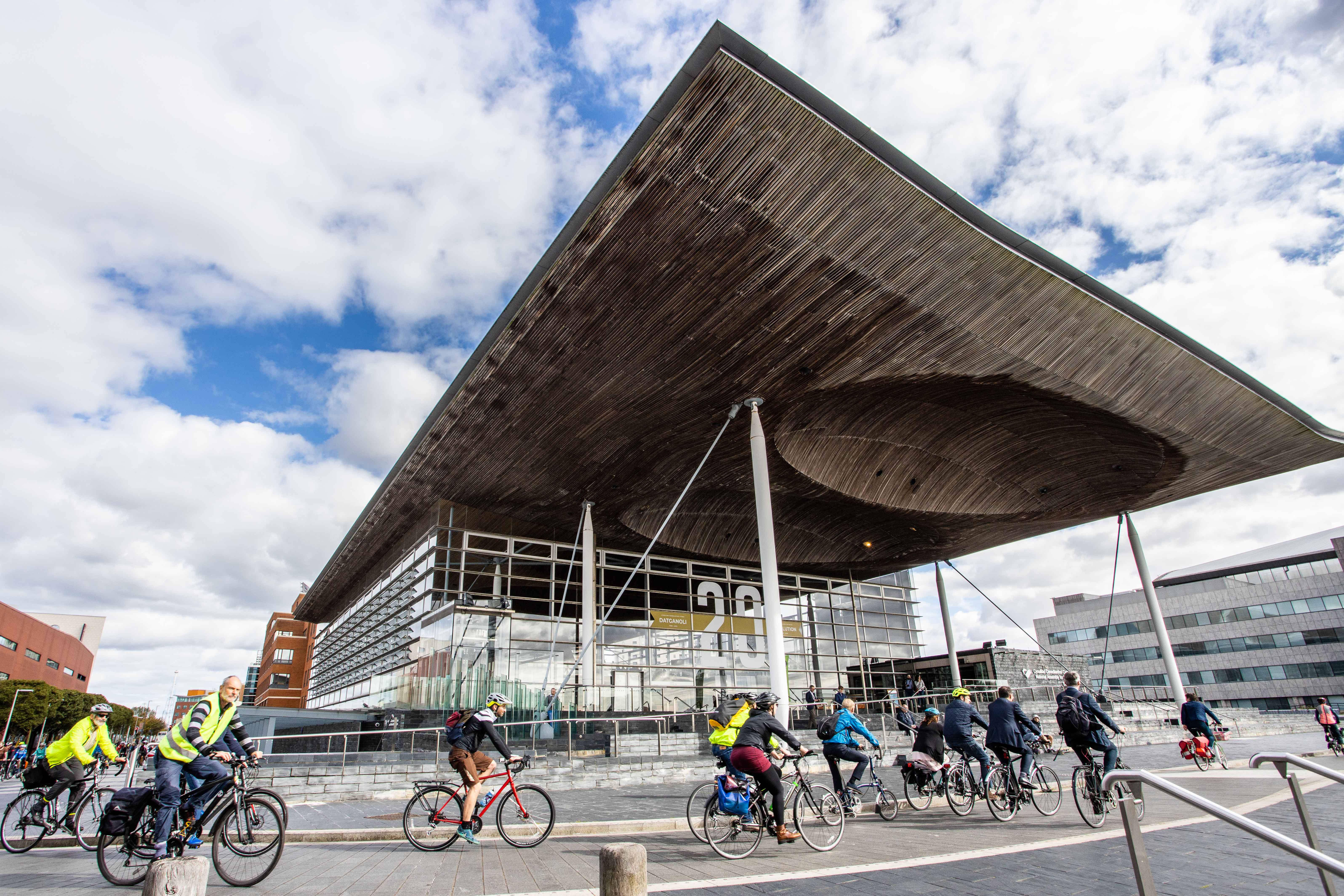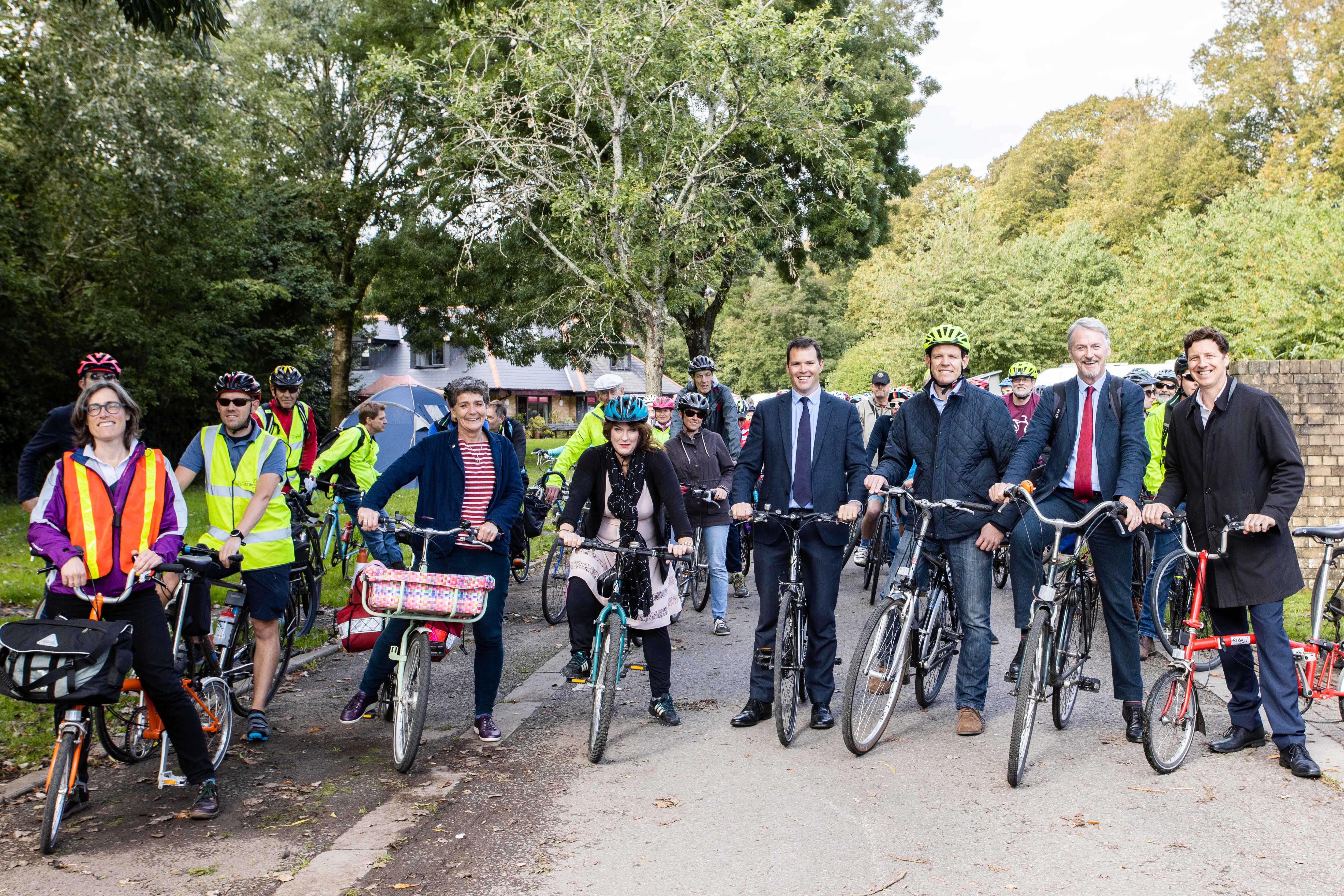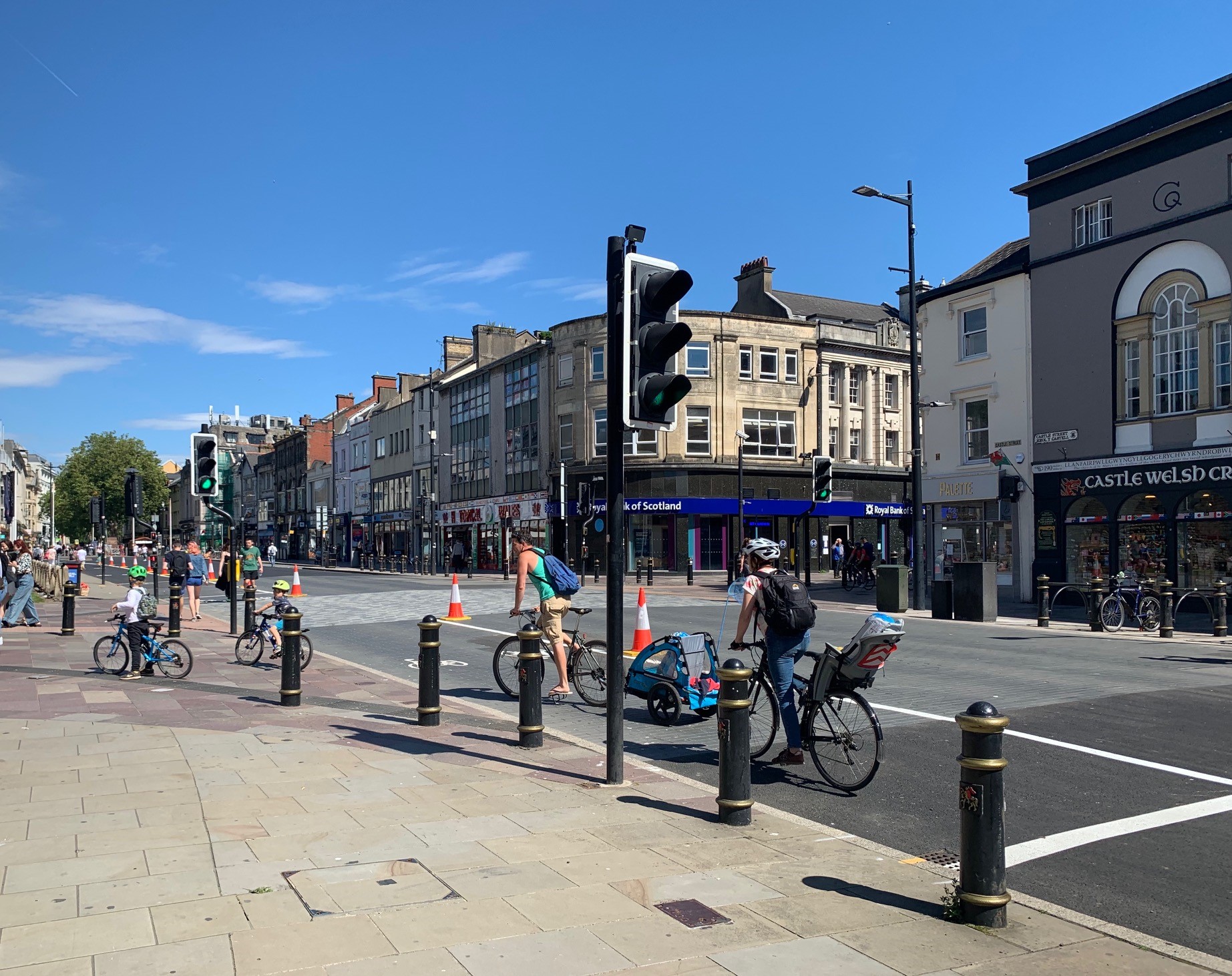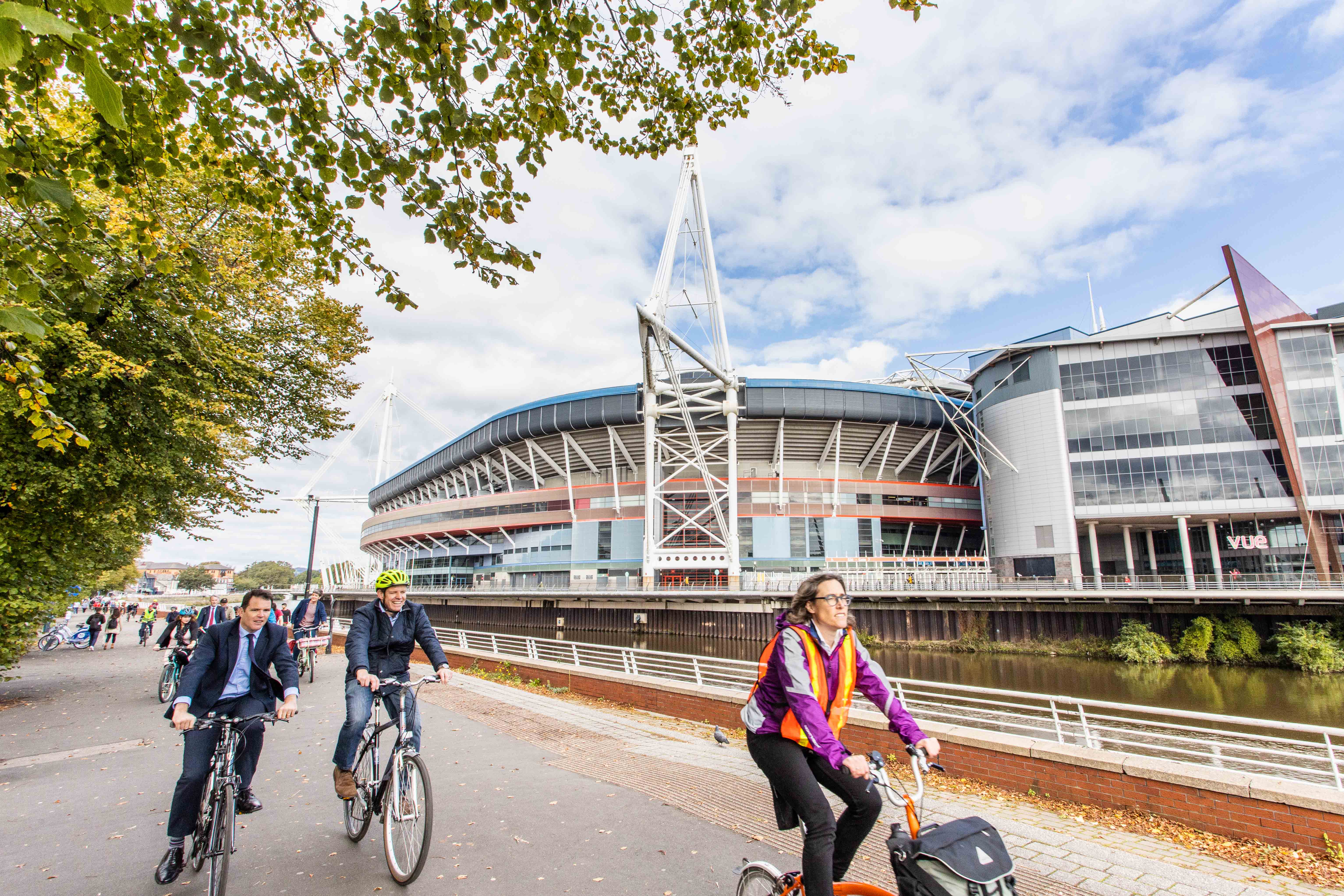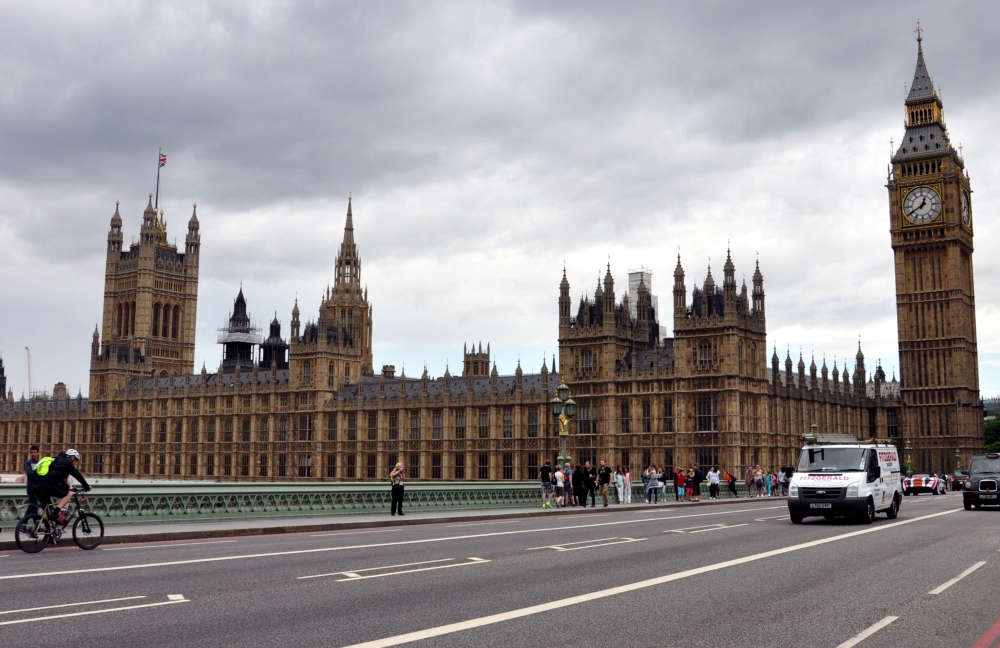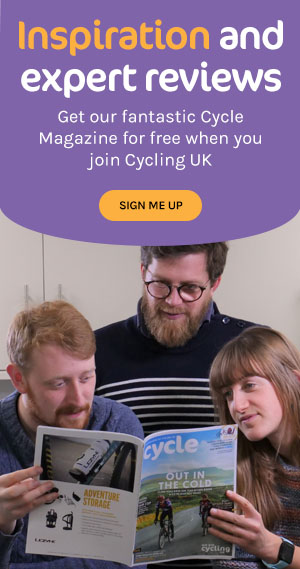How to improve transport cycling in Wales
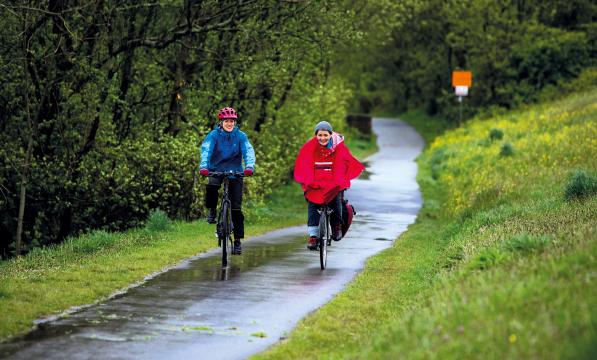
We all know the arguments for active travel, but with the pandemic bike boom and Highway Code changes if feels like there’s a subtle shift in transport cycling’s prospects – that the arguments, at least, have been won. I asked Dafydd Trystan, chair of Active Travel Board, Wales whether we can really transform transport cycling’s fortunes, and if so, how do we get to the point where it’s not just for bold, confident cyclists but accessible to everyone?
How much are things like the Active Travel Act, climate priorities and Wales’s focus on school journeys transforming cycling and walking prospects?
The Active Travel Act means we have nationwide active travel maps, but to do something practical about the aspirations on those maps, you need cash. The Deputy Minister for Transport and Climate Change, Lee Waters, secured a significant increase in Wales’s active travel spend over the last two or three years but we’re only now seeing some of those projects coming through.
Would you say that things are changing in Wales?
As well as new protected bike lanes there’s new guidance setting out ambitious minimum infrastructure standards. People sometimes ignore government guidance, so we’ll see the proof in five years’ time when things are built.
Do you think a so-called golden age of cycling is starting to feel more than just words?
Some cities in England have made significant progress but we haven’t got that in Wales. My fear is we’re seeing some drop back towards pre-pandemic levels. So no, the golden age of cycling hasn’t dawned in Wales yet.
How can we make transport cycling more accessible for everyone?
By making sure we’re planning infrastructure around the needs and aspirations of people who are not currently cycling and walking. I’ve been talking a lot about inclusive cycling, such as removal of barriers on the NCN [National Cycle Network], and adaptive cycles.
What are the top things to transform cycling’s fortunes in Wales?
I’d like a greater focus on e-bikes, helping people cycle 10-15 miles to work without having to shower. We’re running e-bike loan pilots in several towns around Wales with month-long low- or zero-cost loans. If you’ve never tried an e-bike you’ll be loath to ditch the car, and I think the government needs to consider an e-bike grant or subsidy scheme.
With a proper cycle lane, Cardiff and Newport could be 30 minutes apart by bike. It takes half an hour to drive. I will die happy if there’s a Dutch-style inter-urban cycling highway between the two.
We need continued resources and, given the climate and health emergencies, to disincentivise car driving, with road pricing or workplace parking levies and connecting effective, sustainable public transport with active travel so someone doesn’t need a car. If you can do that you can change the world.
Any examples from Wales other UK regions could learn from?
We’ve been working on school streets, seeing 20-30% increases in children walking and cycling to school, which is significant. In Dulgarrog we’ve put ‘dark sky bollards’ in, to minimise light pollution; small things can make a big difference.
Are there unique challenges in Wales?
We’ve some sparse populations, but with rurality e-bikes become even more important. Population tends to congregate around villages or towns, so while we might not develop active travel for everyone, we can do far more.
Have you been able to do much in your 18 months in post?
The active travel board I chair is working but the pace of change remains slow. Resources were properly diverted to the pandemic. I haven’t yet visited a local authority, which I’m planning to do this summer. Until you’re on the ground you don’t get a proper feel for what’s going on.

